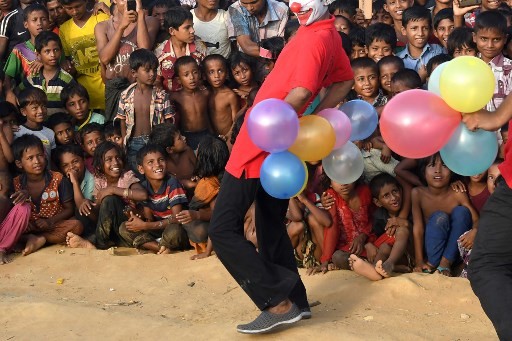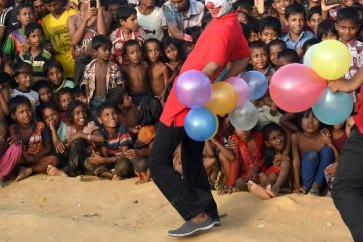Popular Reads
Top Results
Can't find what you're looking for?
View all search resultsPopular Reads
Top Results
Can't find what you're looking for?
View all search resultsWe must not fail the Rohingya again
International political leaders are still failing to put the human rights of all — especially the Rohingya — at the heart of their diplomatic efforts.
Change text size
Gift Premium Articles
to Anyone
I
t took the tug of a shirt. A history revisited. One of Oxfam’s most experienced water engineers, Zulfiquar Ali Haider, was recently approached by a man in his 60s, who was living in the Rohingya camps in Bangladesh. Extraordinarily the refugee recognized Haider — as the man who helped to save his life by providing emergency water two decades before.
It was a reunion tinged with sadness. For the third time in 40 years the world watches Rohingya people forced to flee after being attacked and driven from their homes. Aid workers like Haider are deployed yet again. The international community watches, again, having collectively failed to find a lasting solution to the decades-long oppression of Rohingya in their own country.
I feel a personal sense of déjà vu: it brings back painful memories of the Rwandan genocide and exodus that took place on my doorstep in East Africa in 1994.
More than 620,000 refugees have arrived in Bangladesh in the last few months — at a speed not seen since the Rwandan crisis. It’s the fastestgrowing refugee emergency in the world today. In an age of ugly intolerance to refugees, an extraordinary Bangladesh has kept its borders open to provide safe refuge.
A crisis of this scale would overwhelm any government’s capacity to provide aid, not least a poor country where one in four people live in poverty and which has experienced a year of devastating floods. Bangladesh and aid agencies are struggling to provide enough support to the huge numbers of people in need.
Conditions in the overcrowded camps are woefully inadequate and refugees — especially women and children — are at risk of disease and exploitation. Water is contaminated, latrines are overflowing, and there are reports of vulnerable people being trafficked and abused.
The international community urgently needs to plug the US$280 million gap in funding required to provide emergency food, water and other essentials, and to keep people safe. It also needs to work with the Bangladesh government to develop a longer-term plan to support both the refugees and the local communities in this deprived area.

















